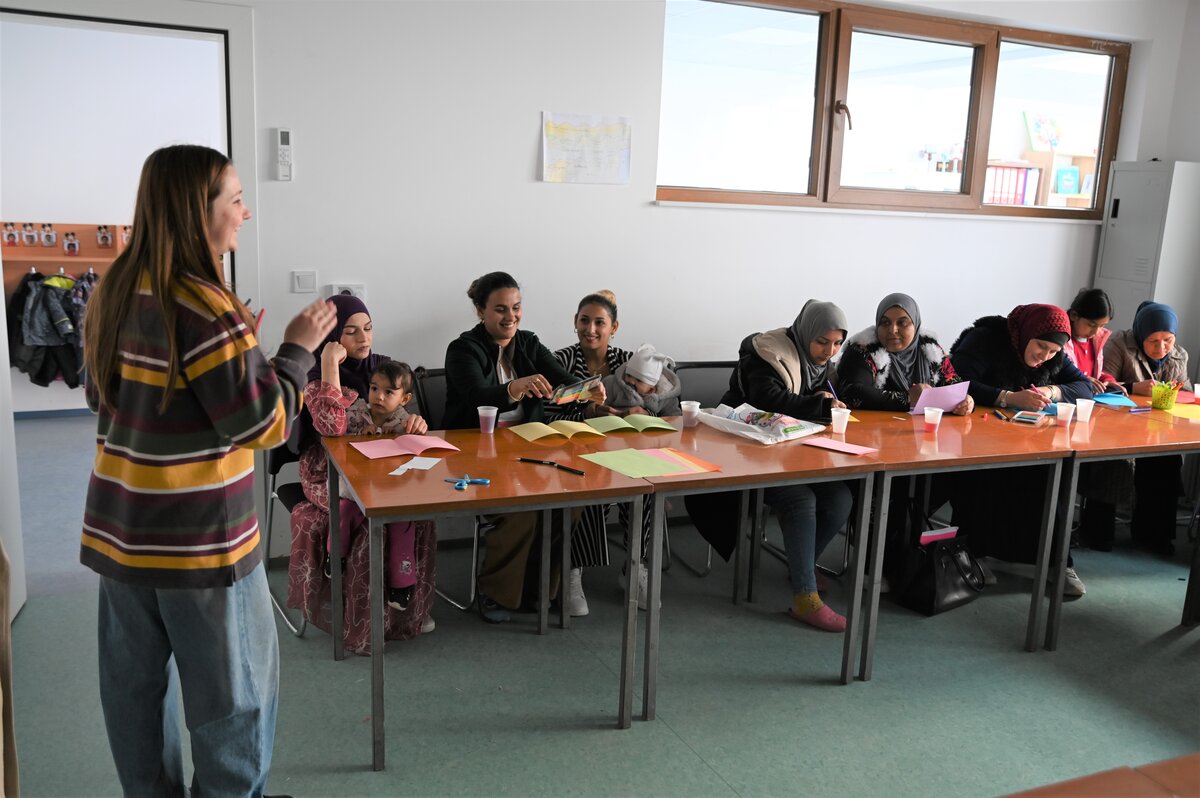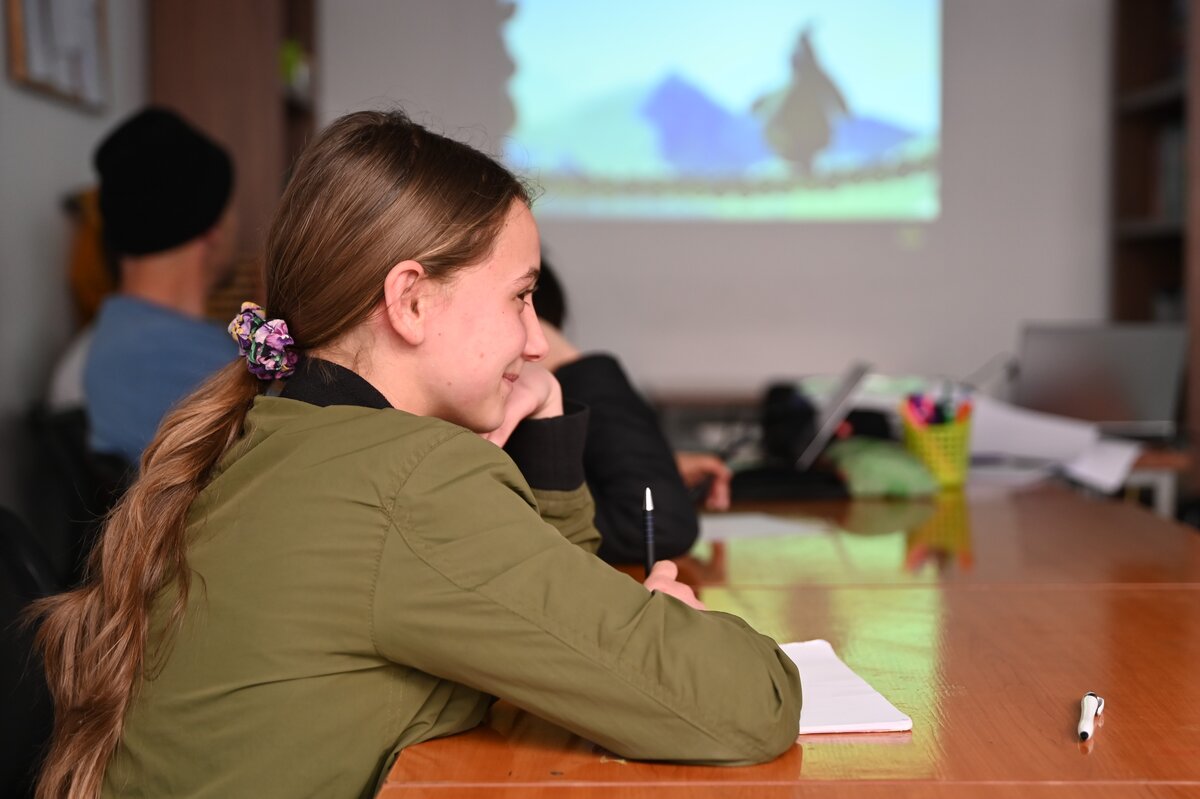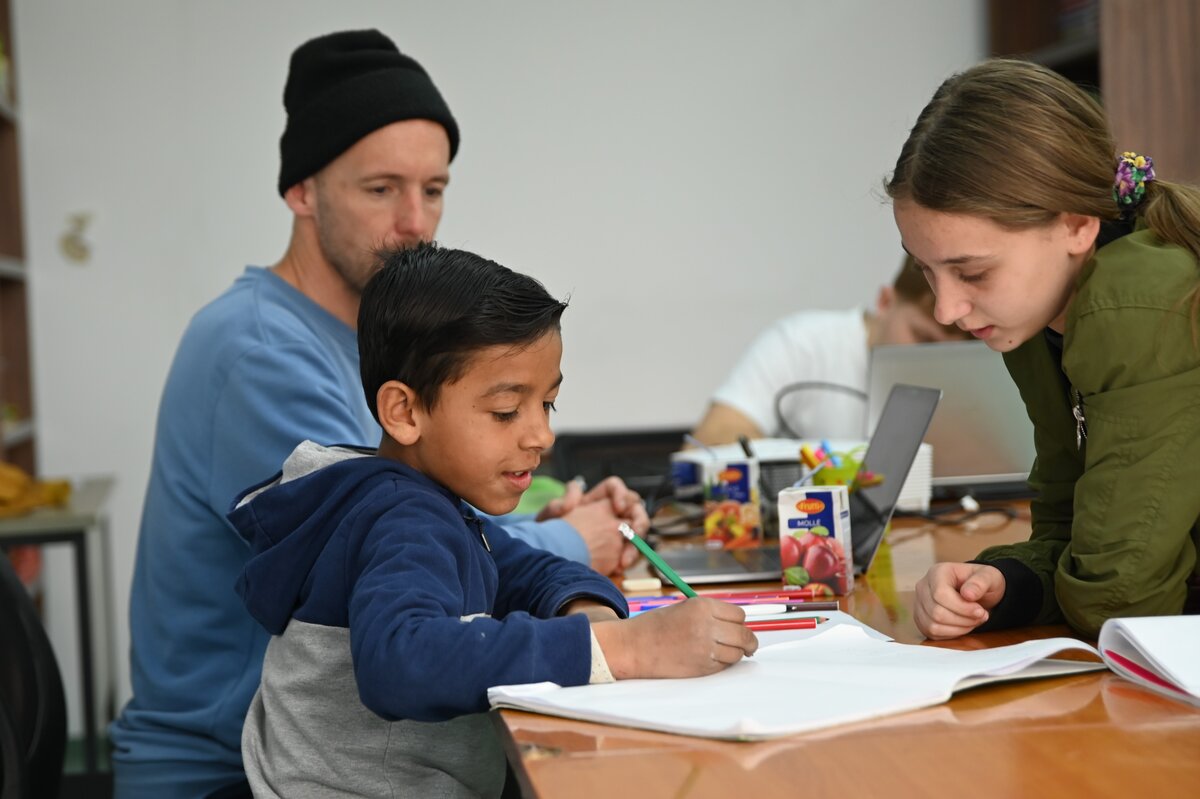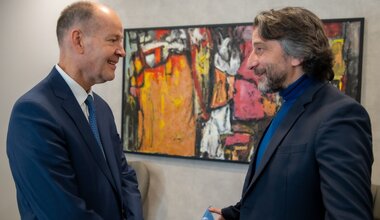‘Instead of teaching my kids, they were teaching me’: learning to read and write later in life
Keeping an eye on your children’s social media activities is hard at the best of times – especially so if you cannot read what is being said.
This was just one of reasons for Musafete Jashari, a 44-year-old Kosovo Ashkali and mother-of-three, to take advantage of free literacy classes being provided by Fushë Kosove/Kosovo Polje NGO The Ideas Partnership (TIP).
“I wanted to get rid of stigma and shame and also to be able to support my youngest daughter when she reached school age.” Motivated by the desire to help her children – as well as herself – Musafete began attending literacy classes four years ago.

“Worst of all, I was not able to help my two older sons when they would come back from school with questions. Instead of teaching them, they were teaching me,” says Musafete, noting that other women she spent time with would ask why she was still illiterate that late in her life.
Born to a mother who was not permitted to go to school, Musafete attended primary school for only four years before dropping out.
“As I went through life, I forgot how to read and write, and at one point, I started feeling ashamed when I would have to sign documents with my fingerprint. Now I can help my eight-year-old daughter with her homework, I know what my children are reading on social media, and when I go to municipal offices or a bank, I can read the documents and sign them," she says.
In addition to relearning to read and write in Albanian, she has also learned some basic English, and improved her mathematics skills.
“This is all making me feel more confident and proud. My shame is gone, and I look forward to reading stories to my grandchild who will soon be born.”
UNMIK supports TIP’s centre in Fushë Kosove/Kosovo Polje in improving and extending the scope of services to communities and providing free kindergarten care, women's literacy and parenting classes, pregnancy and health counselling, extracurricular and science classes for pupils, and also works with young girls and families to challenge the tradition of early marriages. The centre works with more than 200 beneficiaries, aged three to 60.
In addition to literacy classes, the NGO also provides supplementary extracurricular classes for school-aged children and a kindergarten for preschool children.
According to Arijeta Islami, TIP Centre Coordinator “it’s really essential to provide pathways to education – without this, our community members struggle to find jobs that provide opportunities for growth and economic mobility.”
Social issues are very much in discussion, and not a taboo, at TIP. One of the main impediments to women and girls receiving an adequate education Arijeta says is early marriage. TIP’s Girls Club aims to turn the tide of young marriages and normalise staying in school – and higher education.

Twelve-year-old Medina is attending the girls club and knows the limitations of early marriage firsthand – her mother got married when she was 17 and gave birth to her first son at the age of 18, and then Medina two years after that.
“We have a girls club here at the centre, and we talk about different issues, such as early marriage and school dropouts, but also about growing up,” she says.
She is all too aware of the limitations this pathway means.
“Had it been different, my mother says that she could have been a doctor or a TV journalist and is motivating me to stay in school and be the best I can be.”

 UN
UN United Nations Peacekeeping
United Nations Peacekeeping





